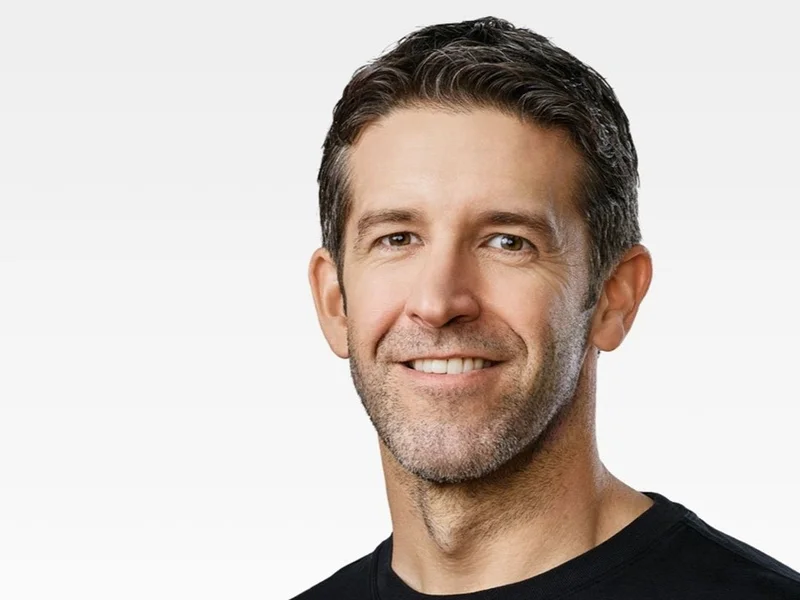Of course. Here is the feature article, written in the persona of Dr. Aris Thorne.
*
Generated Title: Apple's Next Chapter Isn't About a New CEO—It's About a New Soul
For the last fourteen years, we’ve watched one of the most remarkable second acts in corporate history. Tim Cook took the incandescent, chaotic genius of Steve Jobs’s vision and forged it into a global empire. He was the ultimate conductor, turning a brilliant but unpredictable rock band into a symphony orchestra that played flawlessly, every single night, in every city on Earth. The result was a three-trillion-dollar company, a testament to operational perfection.
And yet, for those of us who look to Cupertino not just for quarterly earnings but for a glimpse of the future, something has felt… quiet. The revolutionary thunder has softened into the predictable rhythm of iteration. The iPhone gets a better camera. The MacBook gets a faster chip. It’s all fantastic, but it’s optimization, not revolution.
So when the news broke, first as a whisper and now as a confident report from Bloomberg’s Mark Gurman, that Apple Weighs John Ternus as Potential Successor to CEO Tim Cook, the immediate question wasn’t just who, but why. The answer, I believe, points to something far more profound than a simple changing of the guard. The choice of hardware engineering chief John Ternus as the heir apparent isn't a corporate succession plan. It’s a declaration of intent. Apple is looking to get its soul back.
When I first read that Ternus was the frontrunner, I honestly felt a surge of excitement I haven't felt for Apple in years. This is the kind of breakthrough that reminds me why I got into this field in the first place.
The Return of the Maker
To understand the magnitude of this shift, you have to understand the difference between the two men. Tim Cook is a master of the supply chain, a logistics wizard who can move mountains of components across the globe and assemble them into miracles of mass production. He was, without question, the perfect person to scale Jobs’s vision. But John Ternus is a different breed entirely. He’s a maker. A product guy. He’s been deep inside Apple since 2001, a veteran who not only survived but thrived under the watchful eye of Jobs himself.

Ternus isn’t a man who thinks in spreadsheets; he thinks in materials, in tolerances, in the way a device feels in your hand. He led the charge on the Apple Silicon transition—in simpler terms, he was the guy who oversaw Apple's daring move to design its own powerful computer brains instead of buying them from Intel, a move that completely redefined the personal computer. As one commenter on a tech forum so perfectly put it, he’s a “hardware guy leading a hardware company.”
This is the core of it all. For the past decade, Apple has been an operations-led company that sells hardware. The potential here is for it to once again become a product-led company that uses operational excellence to bring impossible ideas to life. Think of it like this: Cook was the master architect who ensured a skyscraper was built perfectly on schedule and under budget. Ternus is the visionary who dreams up the skyscraper’s impossible shape in the first place, the one who asks, “What if a building could touch the clouds?”
The fact that other contenders have fallen away—operations chief Jeff Williams, marketing gurus, finance experts—isn’t a coincidence. It feels like a deliberate, conscious choice. Apple seems to have realized that you can’t optimize your way to the next paradigm shift. The next iPhone, the next truly personal computer, won’t be born from a supply chain diagram. It will be born in a design studio, from a deep, intuitive understanding of how humans and machines should interact.
A Search for the Next Big Thing
Let’s be honest: Apple is at a crossroads. The iPhone is a mature product. The Vision Pro was a stunning piece of engineering that hasn't yet found its purpose. Apple Intelligence is, for now, playing a game of catch-up. The legendary car project is a ghost. The era of guaranteed, ground-shaking hits seems to be on pause. This isn't a crisis of competence; it's a crisis of imagination.
This is why the prospect of a Ternus-led Apple is so electrifying. Imagine what happens when the person with the final say is the one who lives and breathes the materials, the physics, the feel of a device—it means we could finally see the kind of truly integrated hardware and software experiences that we've only dreamed about, moving beyond the glass slab and into something entirely new. It’s a signal that the company is ready to take big, terrifying, product-centric risks again. The kind of risks that gave us the iPhone in the first place.
This is a move that feels almost like the invention of the printing press. For centuries, knowledge was controlled by the scribes who could painstakingly replicate it. Then Gutenberg came along—a craftsman, a metallurgist—and created a machine that changed the world. Apple has had its era of the scribe, perfecting the text. Now, it seems to be calling for the inventor to build a new press.
Of course, this comes with immense responsibility. The tools these people build don’t just sit on our desks; they shape our reality, mediate our relationships, and define our culture. But what does it mean for us, for you, when the person at the helm is fundamentally driven by the product itself? Could we see a renewed focus on technology that serves human creativity rather than just consumption? Can one person, steeped in the original culture of “insanely great,” reignite that fire across a company of 160,000 people? I believe the answer is yes.
A Return to First Principles
The story of Apple’s next decade won’t be written in the stock market tickers. It will be forged in the labs and design studios. Choosing John Ternus isn't just about finding a new CEO. It’s about Apple remembering what it is: a company that builds magical things. It’s a profound and thrilling statement that, after a long and wildly successful era of perfecting the present, Apple is finally ready to get back into the business of inventing the future. And for all of us who believe technology can be a force for wonder, that is the best news we’ve had in a very long time.

